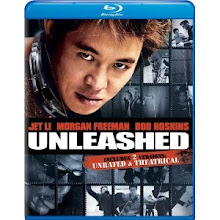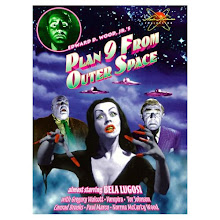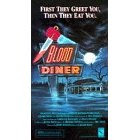Ah Fargo. I remember first seeing this movie on VHS sometime in the summer of ’97 on the recommendation of my current girlfriend who at that time was living a couple states away from me having gone home after the end of the previous year of college. Our conversations for quite some time after were peppered with “Oh geese,” “you betcha,” and “I think I’m gonna barf.” She came to visit me at one point and I bought her the collector’s addition VHS with a snow globe that had Margie kneeling in the snow beside a gunshot victim next to an upside down car. It was awesome. Crappy relationship though. I wish I could get that snow globe back.
I remember falling in love with the oddness and beauty of the film. In the mid nineties there was a real vibe that bizarre stuff was really cool, whether it was music, movies fashion or whatever, and then with movies it was really hip to have sort of shocking and harsh violence mingled with dark humor. Fargo fit so well into that, but it was also apparent right away that this movie mattered--it was about something, and told America something about itself.
I remember on the first viewing having a strong emotional response while watching the opening sequence of that ugly car towing another ugly car over the bleak snowy horizon to that gorgeous and haunting music. It was just an image set to music but it seemed to speak so much to me--to be full of aching and yearning and I don’t really know how to articulate what else. As a kid growing up in rural central Utah I’d definitely seen my share of bleak wintry landscapes, as well as disappointment and yearning behind the smiles of badly dressed friendly people. I’m being clever here and truly don’t mean to belittle or stereotype people, but it’s true that there’s a lot of pressure in middle America to be really successful and respected and important and it’s hard for most of us to measure up. I’m thinking of friends and family who got overwhelmed by debt or unfulfilled ambitions or just really wanted to go somewhere and be somebody but felt they didn’t. Add that to a ridiculously harsh natural environment and desperation is sure to result. I think that’s why we don’t laugh at Jerry. We all have a fear of becoming him--maybe not in the crazy scheming way, but in the disrespected, small-feeling, unsuccessful, all our mistakes piling up and being made known and destroying us sense.
What’s great about the movie is that the ultimate message is to be tough in the face of all that and take the moral high ground. Enter Margie. She’s tough but optimistic, driven but grounded--the source for her stability and hopefulness being her beloved husband and unborn baby. After all, “There’s more to life than a little money. Don’tcha know that?” With the right perspective family buffets and a bag of night crawlers--all the little things are what are enjoyable and meaningful, not the big bags full of money. That’s what Jerry lost track of amid his selfish self-pitying and money seeking. The stress from his mounting problems from lying at work and his poor performance and his obsession with secretly fixing things got in the way of his enjoying a hockey game with his son or maybe cuddling under one of Jean’s home-knitted blankets to watch a movie. He would rather risk their lives than have to admit his mistakes and seek help to get out of the trouble he got himself into. Like so many of us image obsessed, well-mannered and easily embarrassed Americans who more than anything just don’t want to look bad or rock the boat in any way, Jerry’s a poster boy for passive aggressive behavior which only leads to dangerous secrets.
Of course what really grabs you with Fargo is the humor which I think is so brilliant and challenging. It makes us feel very uncomfortable to laugh at something horrible, and that’s exactly how we should feel. We don’t know Jean really, and her very physical attempts to escape her kidnappers are funny in a slap-stick way. The thing about slap-stick is it works because we don’t believe there’s real danger like in a Tom and Jerry cartoon. But Fargo is a realistic film, and the people who get hurt suffer and bleed, and we laugh at them anyway. Basically, laughing at Jean's misfortune whether by us or by the characters in the movie illustrates that Jean isn't valued. It was Jerry's despicable actions that led her to be among people who don't value her and there is no escape for her, not even a cinematic escape. It seems logical that to adequately pay tribute to Jean there should be a really emotional cinematic portrayal of her sorrow and suffering set to sympathetic music with maybe a little slow-mo of her forlorn expression as this sweet wife and mother just wants to go home to her family and be safe and happy. But the thing is, if these kinds of thugs really kidnapped a Jean, there would be no such moment. They would laugh at her and completely demean her and strip her of her dignity. The Cohen brothers merely portray the events and we are free to laugh, be outraged or like me, do a little of both. I suppose if we just laugh and are completely detached as with a cartoon then we're probably sickos. But if we laugh but fill that tinge of guilt, then we're probably normal compassionate folks who will hopefully do the work to realize the horror behind the comedy. The unsympathetic portrayal is harsh and real making her death all the more tragic as a pathetic discarded figure and Jerry’s betrayal all the more vile.
Then there’s a ton of less controversial humor that is truly just fun and hilarious that makes the movie rich and enjoyable. I love the “Go smoke a peace pipe,” line.
Fargo is one of those movies that I can always sit down and watch and enjoy for its humor, disturbing violence and themes, tragic story of failure and disgrace and its simple and sweet message that there is in fact more to life than a little money.
Thursday, July 31, 2008
Subscribe to:
Post Comments (Atom)






























































No comments:
Post a Comment